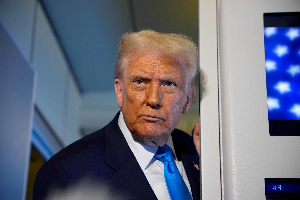Coronavirus was always going to come to Nigeria. If a viral disease originates from China, the world’s most populous country, then Nigeria, the seventh most populous is surely a potential destination given the intricate interconnectedness of nations. It was always a matter of when rather than whether. On Friday, the first case was confirmed, meaning we had more than two months of notice. Still, when it got here, we were ill-prepared. Everything that has happened in these three days speaks volumes about who we are as a people and a government. The costs of sanitisers have multiplied, face masks now sell for five times their original prices, a good number of the people are in panic mode, fake news are spreading really fast and, who knows, anti-coronavirus funds are probably being pilfered already. Why are we like this as a people?
When the International Centre for Investigative Reporting (ICIR) reported two weeks ago that the country was not ready for coronavirus despite repeated assurances from the Health Minister, Osagie Ehanire, very few seemed interested. At the National Hospital, located in the Federal Capital Territory, only a makeshift two-bed isolation ward was prepared for likely victims. This was the same space reserved for potential Lassa Fever and Ebola patients. Meanwhile, the University of Abuja Teaching Hospital (UATH), Gwagwalada, had nothing. No surprise, therefore, that the index case from Italy arrived in Lagos to a “very poor quality” isolation ward, prompting him to attempt escaping. The state government may have denied the escape story, but how does anyone believe a government that, only hours earlier, said the facility was well-equipped, only for it to emerge that the isolation centre was indeed unventilated and mosquito-infested?
This doesn’t necessarily mean the virus is set for an unprecedented spread; Nigeria will contain it, of course, as it did Ebola. But even as it was with Ebola, coronavirus patients will have to endure a stay in an isolation ward that haunts them with death rather than embolden them for life. If in doubt, ask Ada Igonoh, the First Consultants Hospital doctor who spent 10 days at a female ward that “looked like an abandoned building” as part of her 14-day isolation for treatment after testing positive to Ebola. When coronavirus is eventually extinguished from the country, it would have been more because of the efforts of the few shinning lights in medicine and, to some extent, government, than because of systemic preparedness for the virus. In 2014, we had Dr. Stella Adadevoh and lots of First Consultants staff to thank for the early containment, otherwise it would have been a monumental national crisis. So much has been said of the brilliance of Dr. Chikwe Ihekweazu, the Director-General of the Nigeria Centre for Disease Control (NCDC), but his work will be compounded by a governance climate that remains recalcitrantly reactive rather than proactive. Coronavirus won’t prove insurmountable, but for how long shall we continue relying on individuals instead of systems? Nigeria is a country that overburdens its shinning lights rather than institute the structures required for smooth running. For how long will this continue?

As a people, it is incredulous the extent to which we can go in our quest for quick money when the normal thing to do is to look out for one another. In three days of coronavirus presence in Nigeria, sanitisers have gone up at least three times their original costs. In some places, it’s as high as more than 10 times, from N800 to N10,000! Face masks, once sold for N100, now cost at least N500. Some greedy businessmen are profiting from the virus while citizens, already accustomed to governments that cannot guarantee their health, have been panic-buying these items. Meanwhile, more than 90 percent of those who have bought the face mask do not even need it. Very few of them know that as long as they are currently healthy, and unless they’re taking care of a person with suspected 2019-nCoV infection, they do not need to wear a mask, or that they only need to wear a mask if they are coughing or sneezing. Many do not know that buying and wearing a mask is not half as important as how to properly use and dispose of it. In any case, even, continuous panic buying of the face mask by members of the public ends up indirectly endangering the buyers. Why? Healthcare workers are the ones who need it. The more you buy, the harder it is for them to access it, the harder it is for them to care for patients, the closer you get to contracting the virus! The Federal Competition and Consumer Protection Commission has promised to sanction those culpable for the hike in price of sanitisers and face masks. Time will tell if FCCPC means business or it’s just the usual sloganeering.
As we continue to monitor the extent of contagion triggered by the index case, it is important for the public to be circumspect with whatever they tweet, share or ‘forward as received’. Too many half-truths and untruths are flying around already. Much against what is currently being circulated, spraying alcohol or chlorine all over the body won’t kill viruses if they’ve already entered the body. And just like in 2014 when people were misled into thinking Ebola could be cured by bathing with or drinking salt and hot water mixtures — at least two people died trying this, by the way — false information is rapidly spreading about how drinking water every 15 minutes could render the virus impotent. It’s been falsely reported that an Uber driver who serviced the index case escaped from the hospital and demanded N100m else he’d spread the virus. In the days ahead, Nigeria faces a battle on its hands to check the potential spread of coronavirus. The success of this mission will depend to some extent on how well it handles the corollary problems of fake news, citizen greed and systemic rot.
Opinions of Monday, 2 March 2020
Columnist: 'Fisayo Soyombo
Coronavirus and its corollary problems
Business














